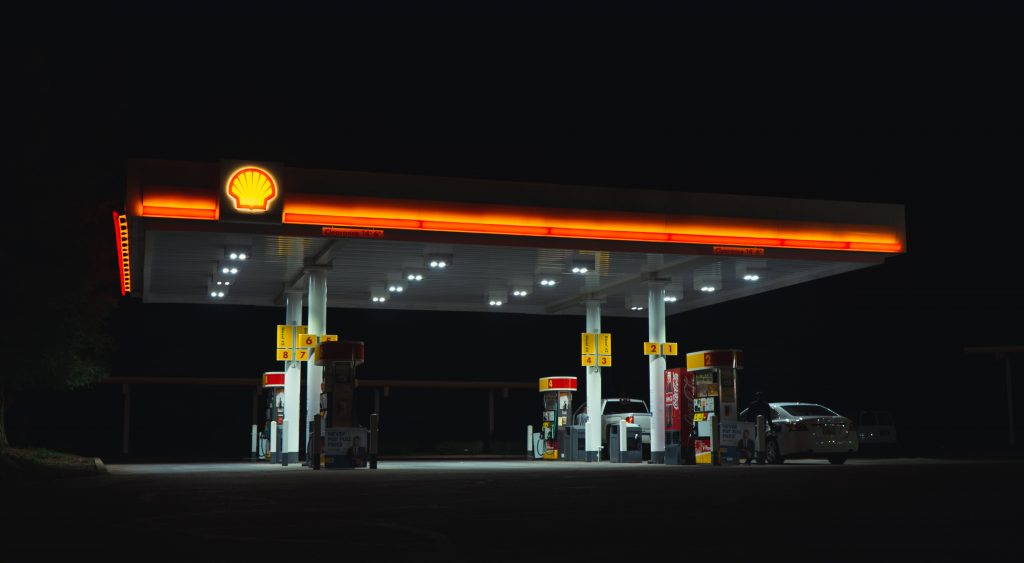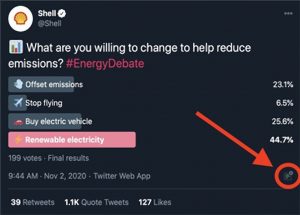
Corporate Social Responsibility and Outsourcing Blame to the Consumer
Image: https://unsplash.com/@pelayonly
By James O’Connor
Absently scrolling through my twitter feed, I couldn’t believe my eyes when I read the tweet that had been promoted to me from the official Royal Dutch Shell PLC account, @Shell. They had spent a portion of their advertising budget to push this poll, asking users: “What are you willing to do to help reduce emissions?” The audacity – it felt as though I’d been punched in the face, nose broken, to then be asked by the person who hit me: “What are you planning to do to stop getting punched in the face?”
Naturally, the people of twitter didn’t take kindly to this poll. Replies hidden by Shell included, ‘Willing to seize all your assets and infrastructure, and bring them under democratic control by the workers and communities you exploit, so we can coordinate a just transition to zero carbon.’(@IrateBen) Or, from US Congresswoman Alexandria Ocasio-Cortez, ‘I’m willing to hold you accountable for lying about climate change for 30 years.’(@AOC) Or, a personal favourite, ‘Are you willing to stop oil and gas exploration, cause if not we’re kinda f*cked regardless of whether I buy an electric car.’(@LordPelagius) This tweet perhaps represents the ridiculousness of this whole premise best. A mega-pollutant multinational, the largest company by revenue based in Europe, attempting to absolve themselves of responsibility for the climate catastrophe by paying actual money to promote a poll asking me what I’m ‘willing’ to do to fight climate change. This ever-increasing narrative, now being publicly pushed by the fossil fuel giants, that the everyday consumer’s individual choices are the way to combat climate change is extremely problematic. Of course, if I was responsible for 1.67% of global greenhouse gas emissions from 1988-2015 (as Royal Dutch Shell is, ranking 9th in the world) I’d probably want to outsource some blame-taking to the people whose world I’d been happily destroying for decades. Personally, I’m willing to stop my exploration of new oil fields, my complicity in the murder of environmental activists trying to stop my ever-expanding destructive agenda in their ancestral lands, and my spending of millions of dollars lobbying policy makers to favour the fossil fuel complex.
We hear a lot about corporate social responsibility and how businesses care about the world. The basis of this idea is that corporations have responsibilities beyond simply maximising profits. For example, they have a duty to look out for their stakeholder interests and their environmental impact. To the naïve eye, the development of the idea of corporate social responsibility beyond Milton Friedman’s famous line that there is ““one social responsibility of business – to use its resources and engage in activities designed to increase profit” (New York Times, 1970) is undoubtedly a good thing. There is no doubt that businesses engaging with their environmental and social responsibilities is a good thing. However, what happens when corporate social responsibility becomes a form of make-up for corporations? For corporations as destructive as Shell, pretending to care is an important part of protecting and maintaining their power and image in a global economy that is slowly making a conscious shift towards renewable sources. Not only is it useful for maintaining this reputation, but corporations can begin to engage with shifting some degree of blame on to consumers and their choices, as exemplified by that nefarious Shell tweet. If they’re trying, the consumer has to try also – the idea of ‘all being in it together.’ As Robin Grove-White described the reaction to the Brent Spar incident, ‘markets can be subjected to social disciplining,’ (New Statesman, 1997). This is true and should be encouraged, e.g. asking consumers to shop second hand instead of buying fast fashion. However, with an industry like that of fossil fuels, it is simply unrealistic. When you need petrol, you have to stop and fill up. The average consumer does not have anywhere close to the resources to make individual choices that extract them from the fossil fuel complex. They cannot erect a wind turbine in their garden or buy a new electric vehicle. Instead of pretending, and allowing pollutant corporations to push the narrative, that individual consumer choice in the energy sector (a choice between what these corporations themselves are offering) is to blame for climate change, we should be pushing for real, regulated corporate social responsibility. The angry replies to that tweet give me a sense of hope.

0 Comments